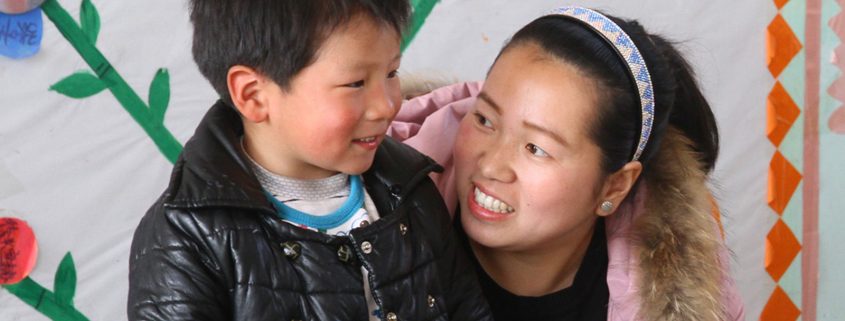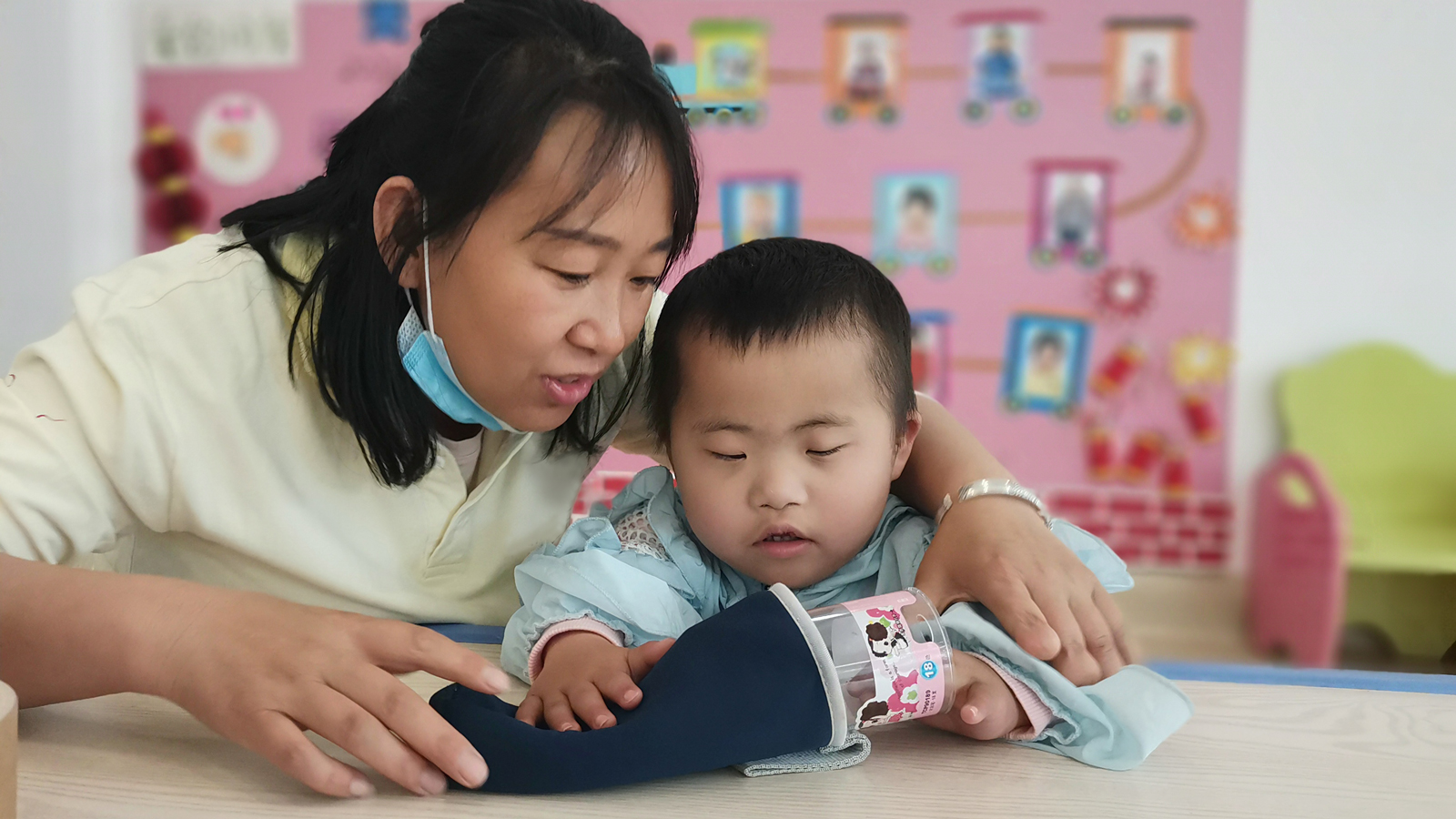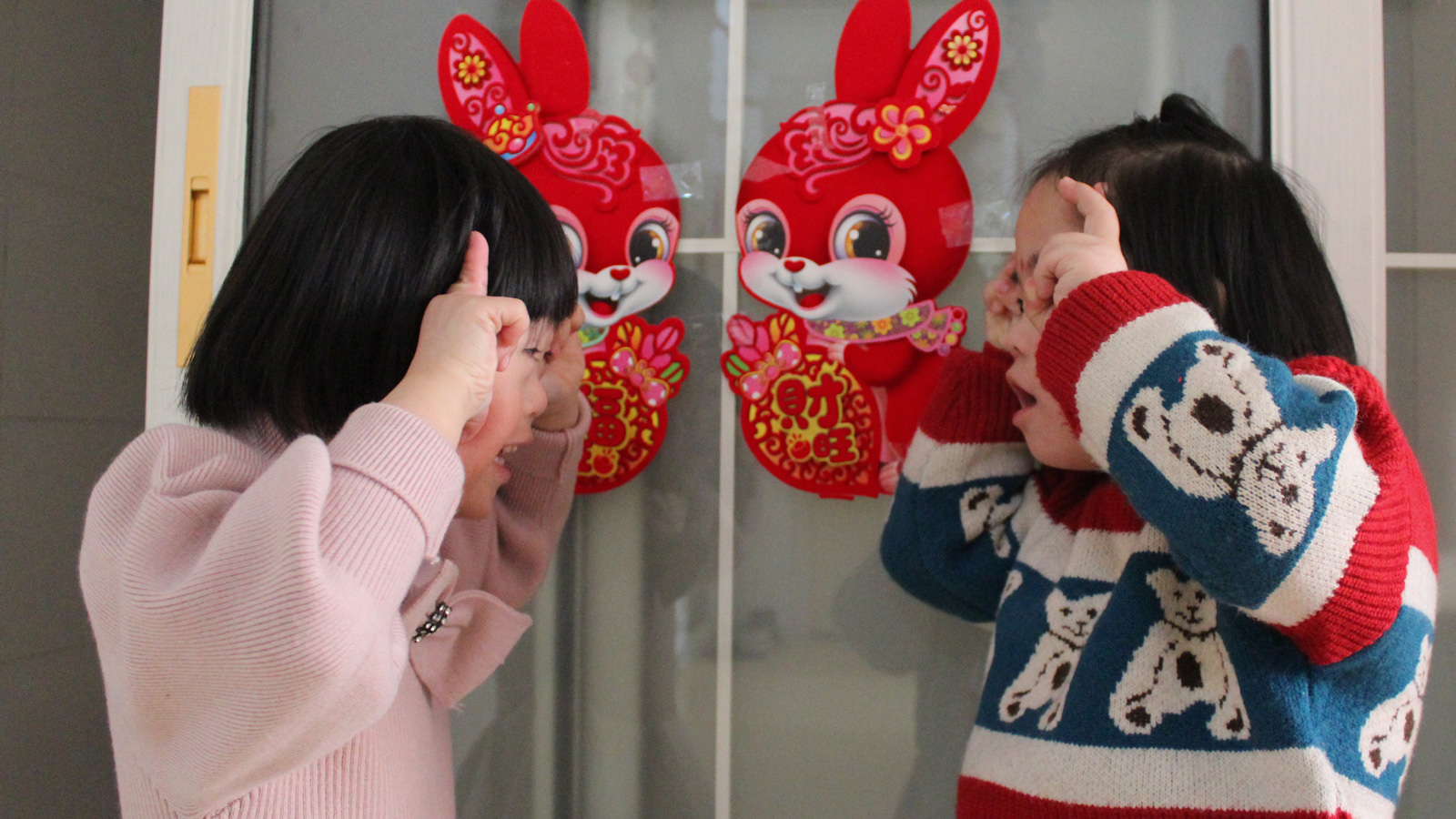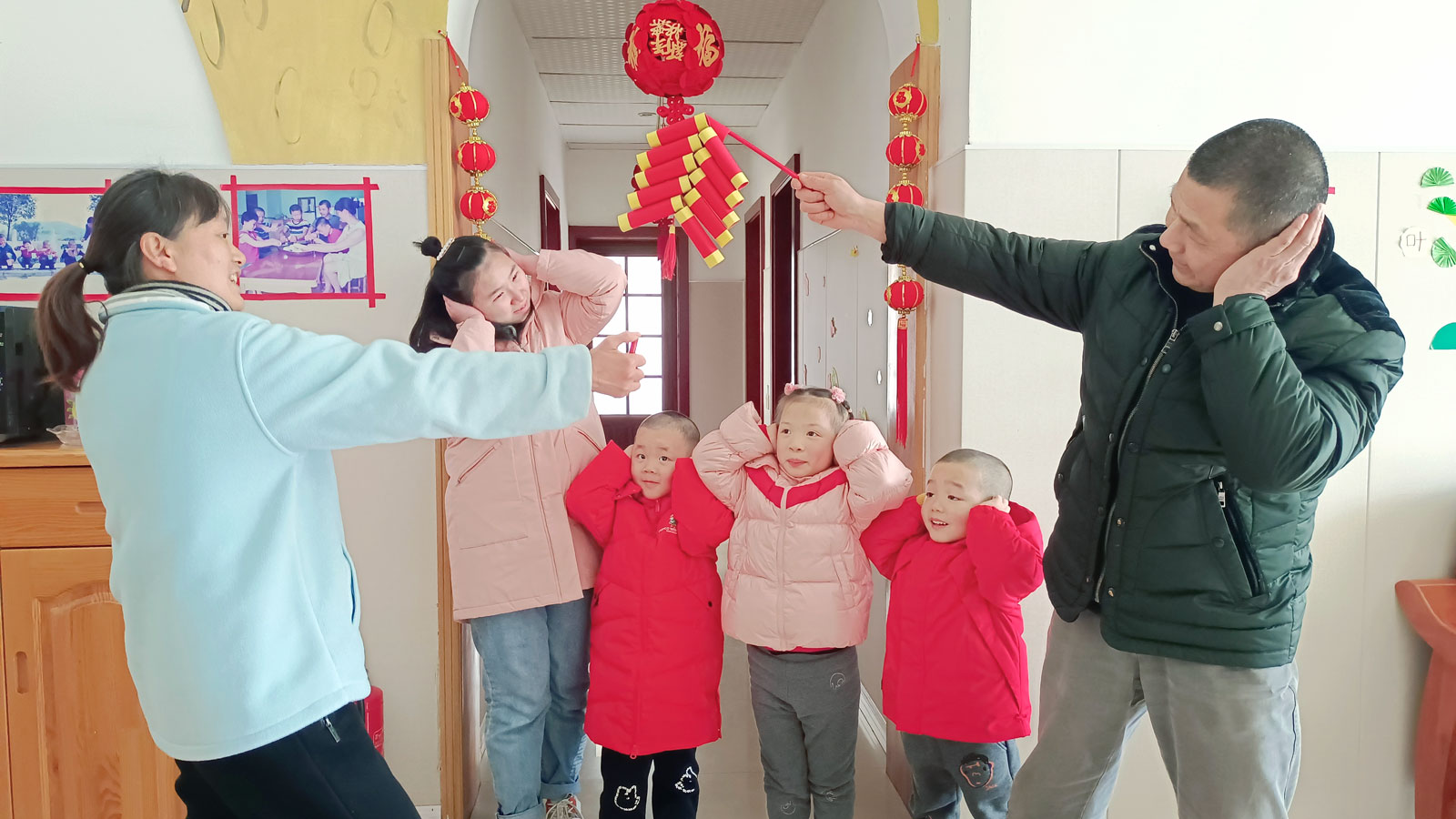A Village Teacher — “Everybody’s welcome in this classroom!”
Li Xiyan has been teaching in a OneSky preschool for more than a year during which she’s learned that education in China’s rural villages is a family affair.
Xiyan herself grew up in a big family in a nearby village where she still lives with her extended family— her husband and four-year-old daughter, plus a grandmother in law, parents in law, and sister in law. When OneSky came to her village to recruit, Xiyan jumped at the chance. One reason was her little daughter. “I didn’t know how to educate her well,” she says. “I wanted to learn.” Xiyan’s previous training as a bridge crane operator and in a steel factory had been far from a preschool classroom.
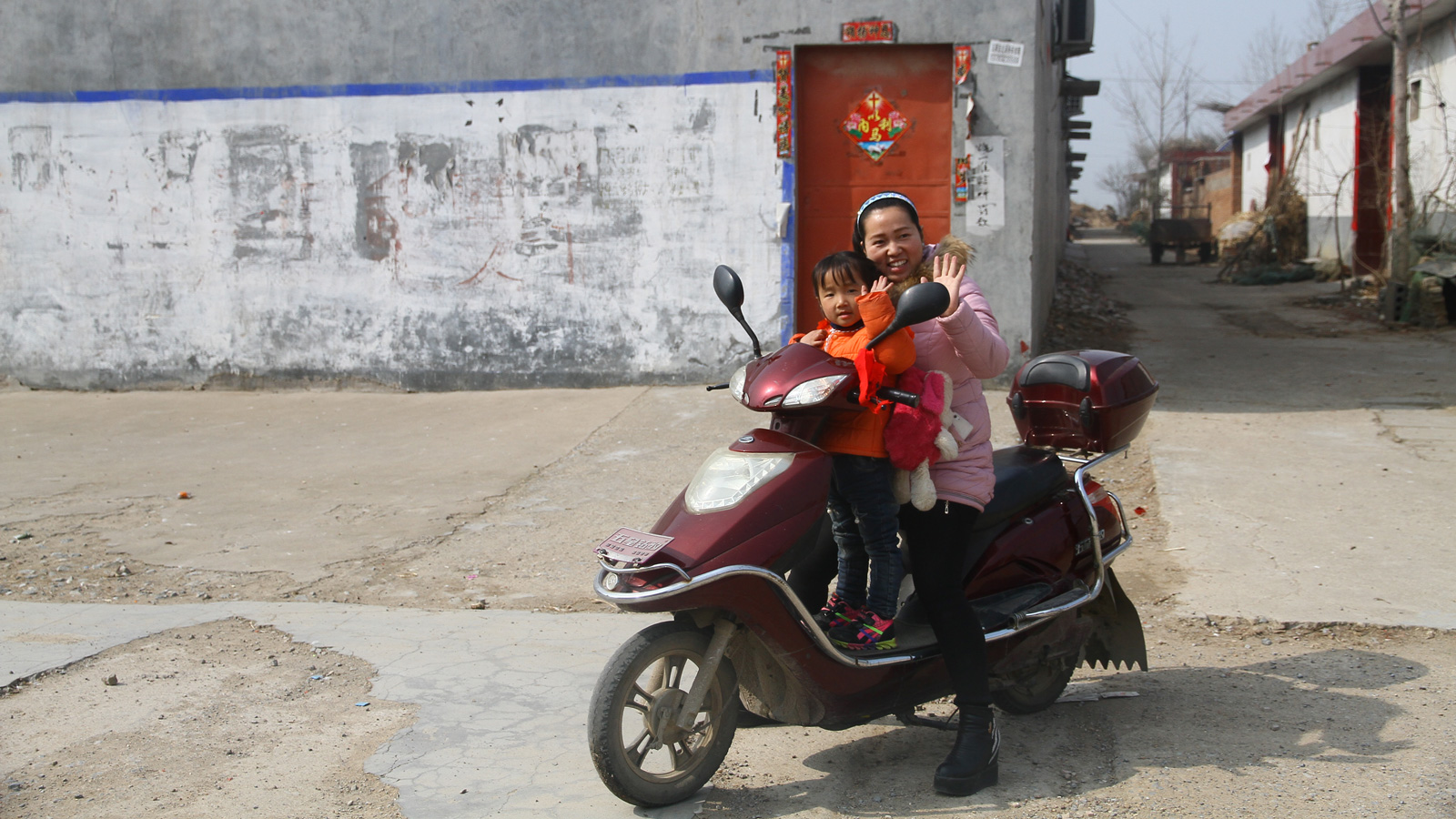
But once Xiyan began working with OneSky’s Teacher Trainer Du Xiurong, she was on her way. “I told myself there was nothing I couldn’t do if I made up my mind.” Soon Xiyan walked into her first classroom. She had learned how to observe and help children, how to establish emotional ties with them. “I had learned to be patient and persistent and to never give up on a child.”
Still, on her very first day in the classroom, back in April 2015, Xiyan recalls, “I was so nervous I almost forgot what to say! My voice was shaking. ”
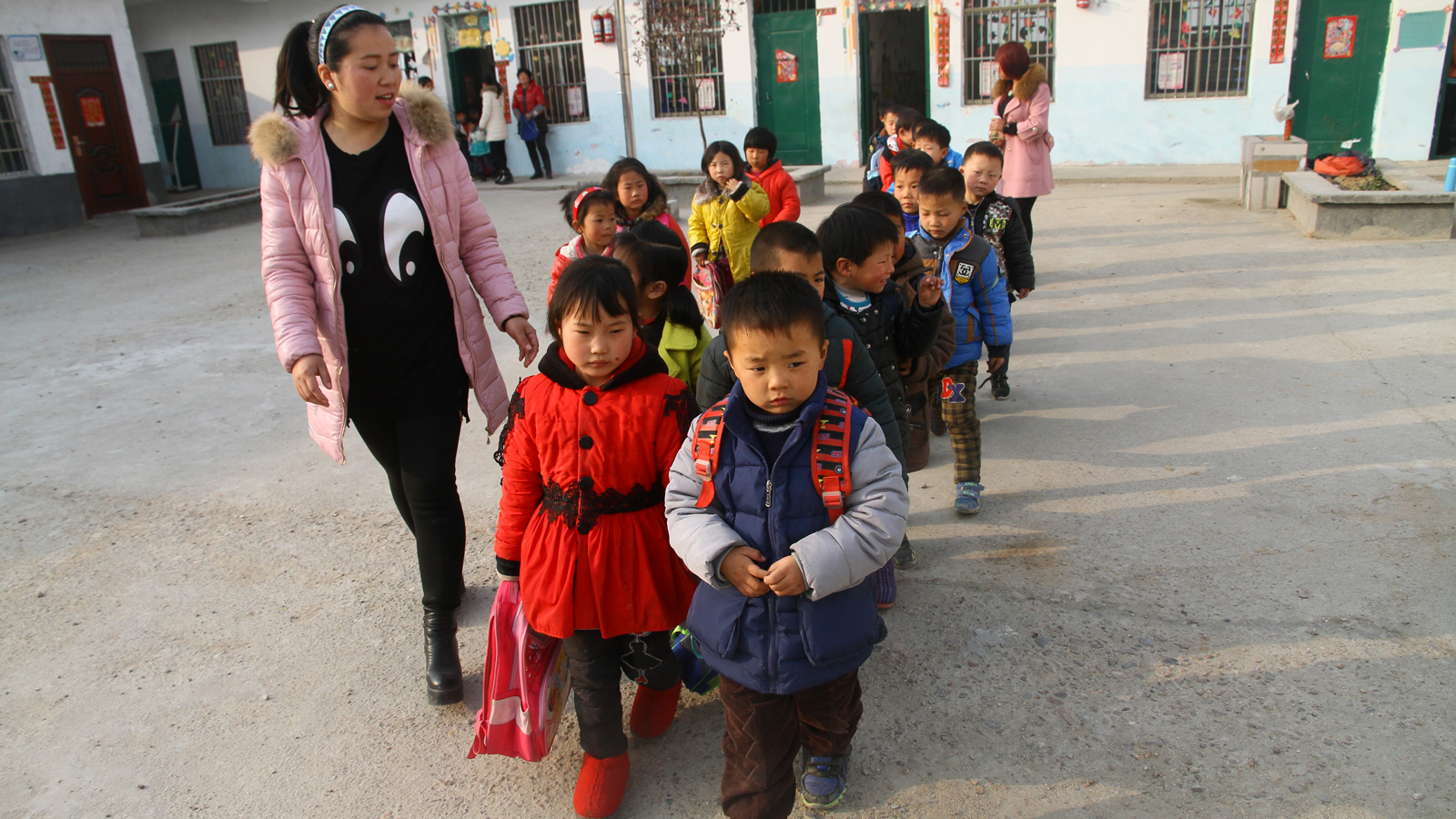
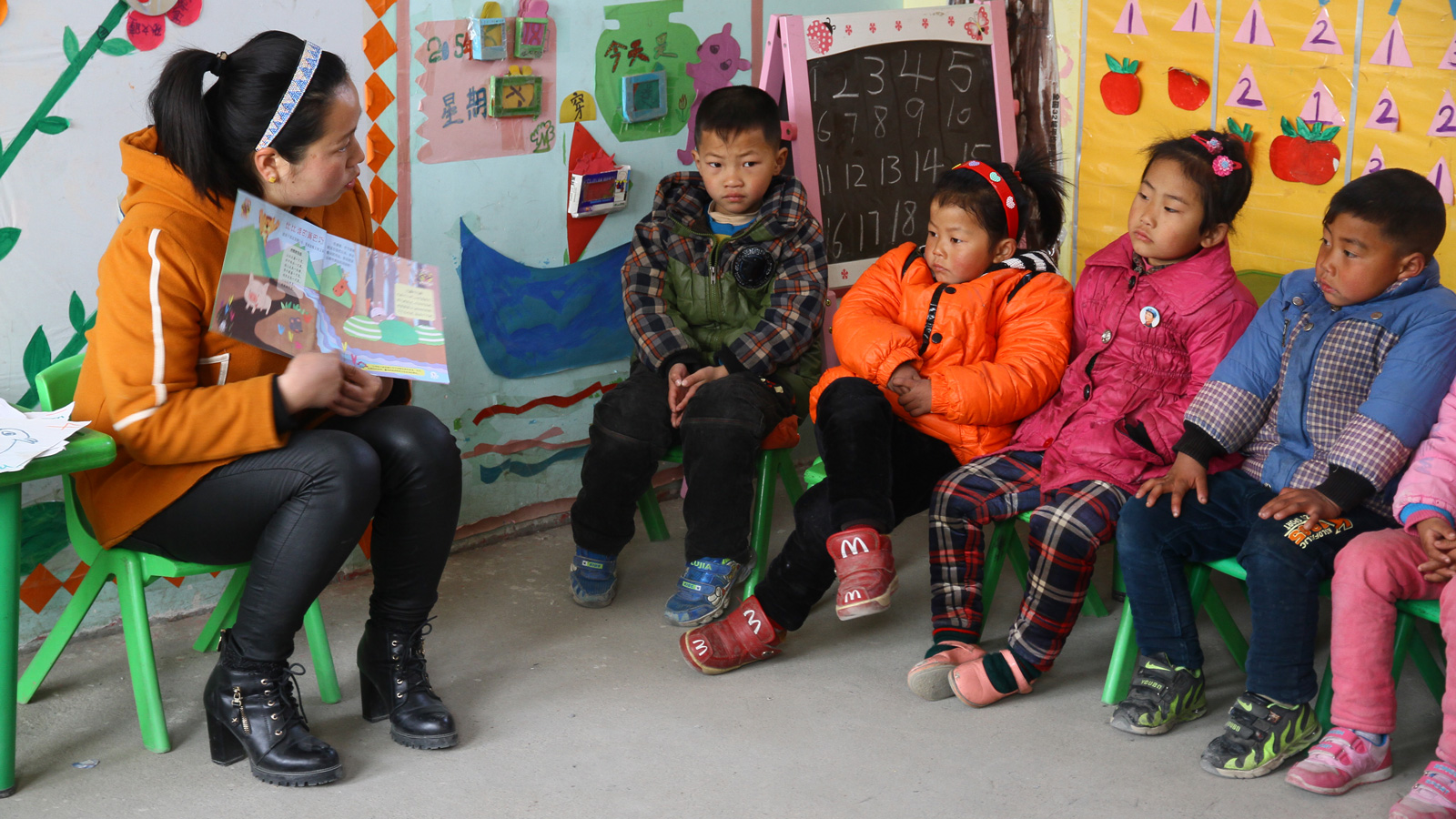
Within a couple of weeks, with the support of other teachers, Xiyan had overcome her nervousness, and was feeling comfortable with her class of 20 five and six year olds. “I knew I needed to make the children feel how much they are loved. I also learned that to be a qualified teacher, I had to feel confident about myself.”
Although she has a daily teaching routine, Xiyan has learned to be flexible, because there are always surprises. She plans her lessons the night before, and comes early in the morning to clean and organize her classroom so everything is sparkling and ready when the children file in.
The day begins with morning exercises, to get all the children moving and energized. Then, before organized activities, the children have some free time—to greet each other, settle in, maybe choose an activity they would like to try later. All the while Xiyan observes each child, making sure everyone is participating happily, watching to see if any child seems troubled, or if anyone isn’t feeling well.
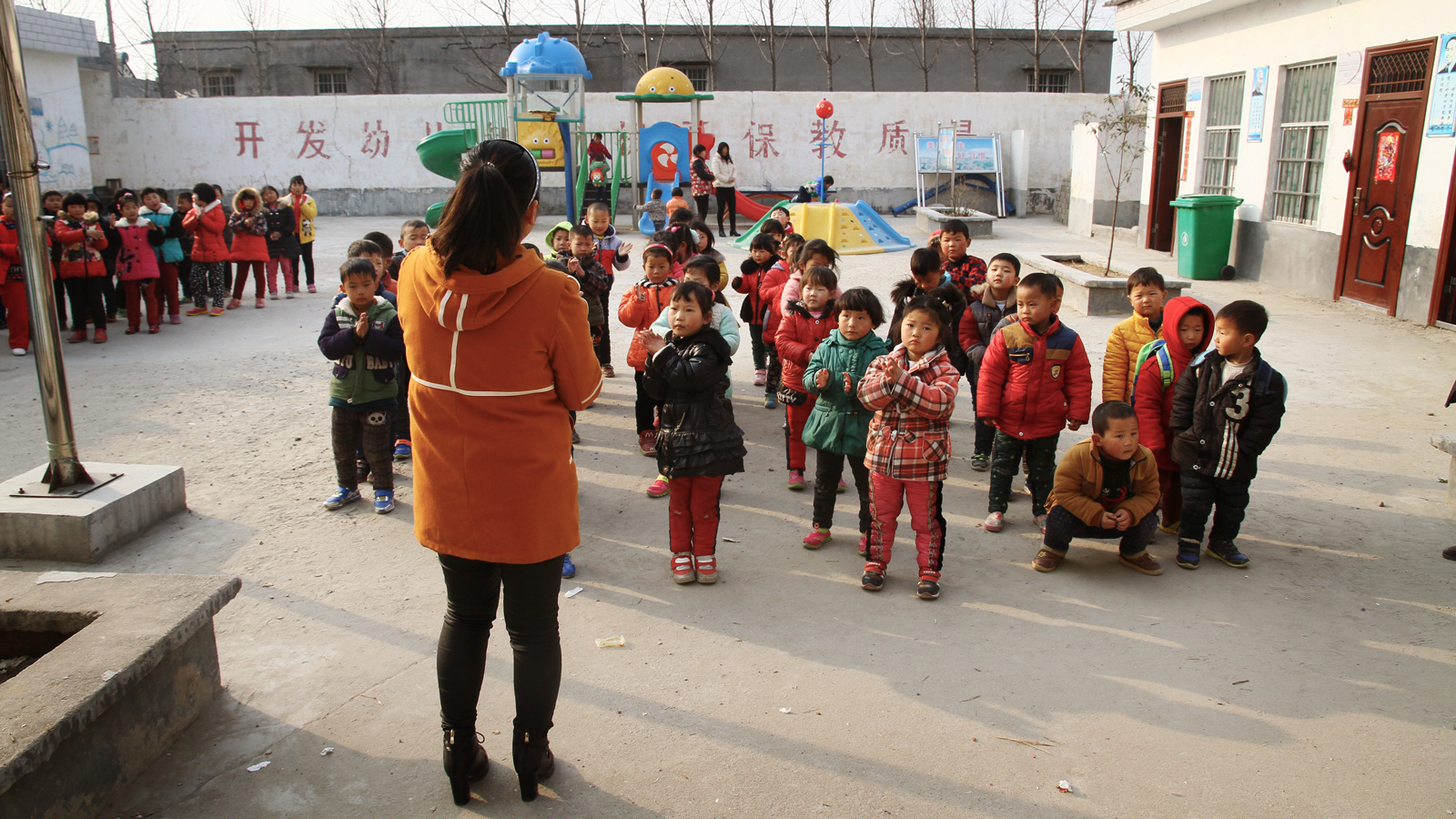
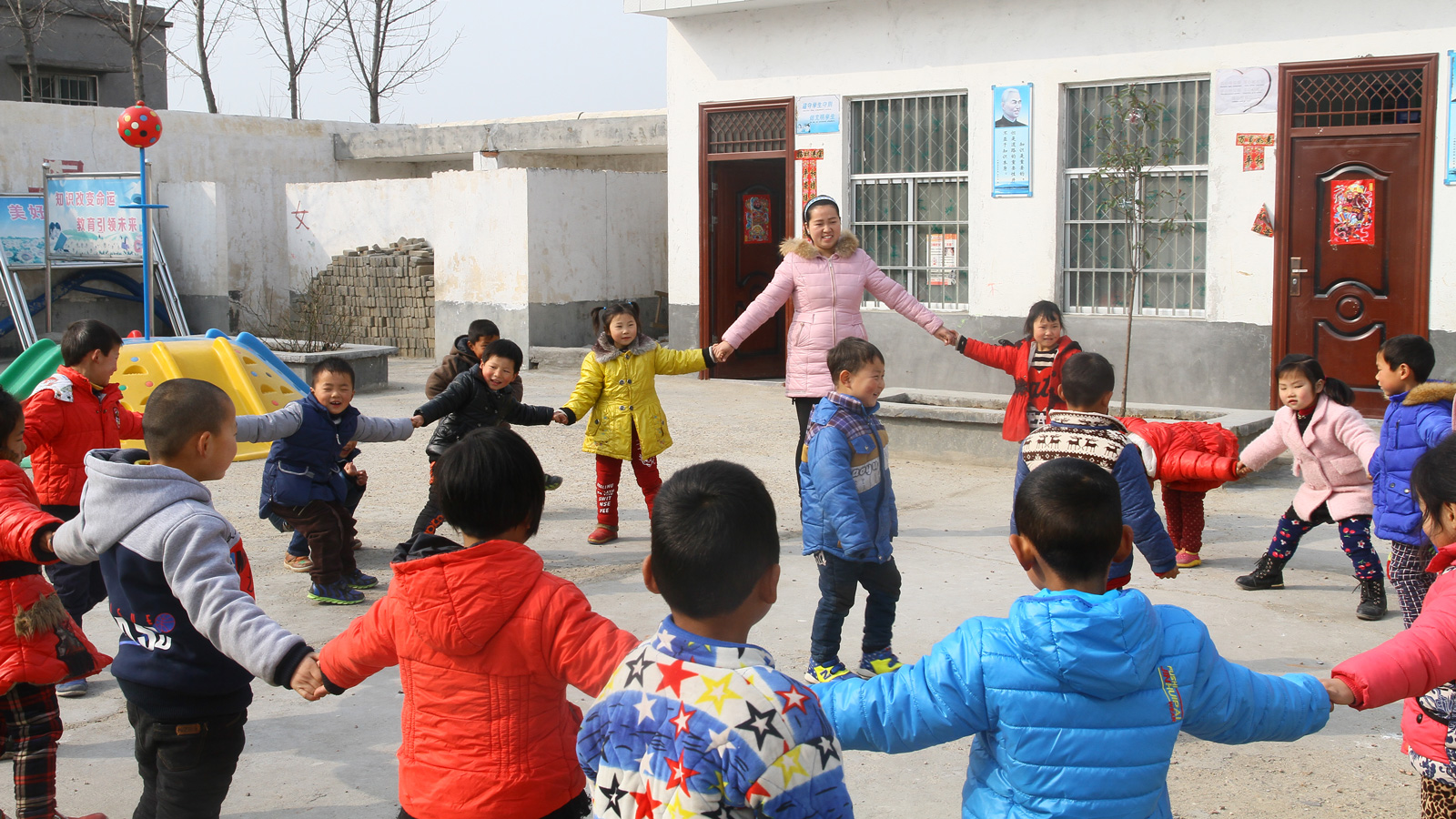
Morning lessons in math, reading, and writing follow, with breaks for snacks and group discussions. There’s also drawing and singing, and time outside to play with friends and run off steam. Xiyan says the children love going out of doors, so she plans time outside whenever she can. In spring, the children love to plant watermelon and sunflower seeds, tend them, and then watch with excitement for the first green leaves to appear.
Whatever the activity, Xiyan pays close attention to each student. When a new child, a very quiet little boy, came to class, Xiyan asked what he would like to draw. “A tortoise,” the boy answered, so Xiyan set him up to do that. After he finished, she gently asked him about his drawing, but he didn’t want to talk about it. She noticed that he listened carefully, though, and she was confident he would open up, given time and attention.
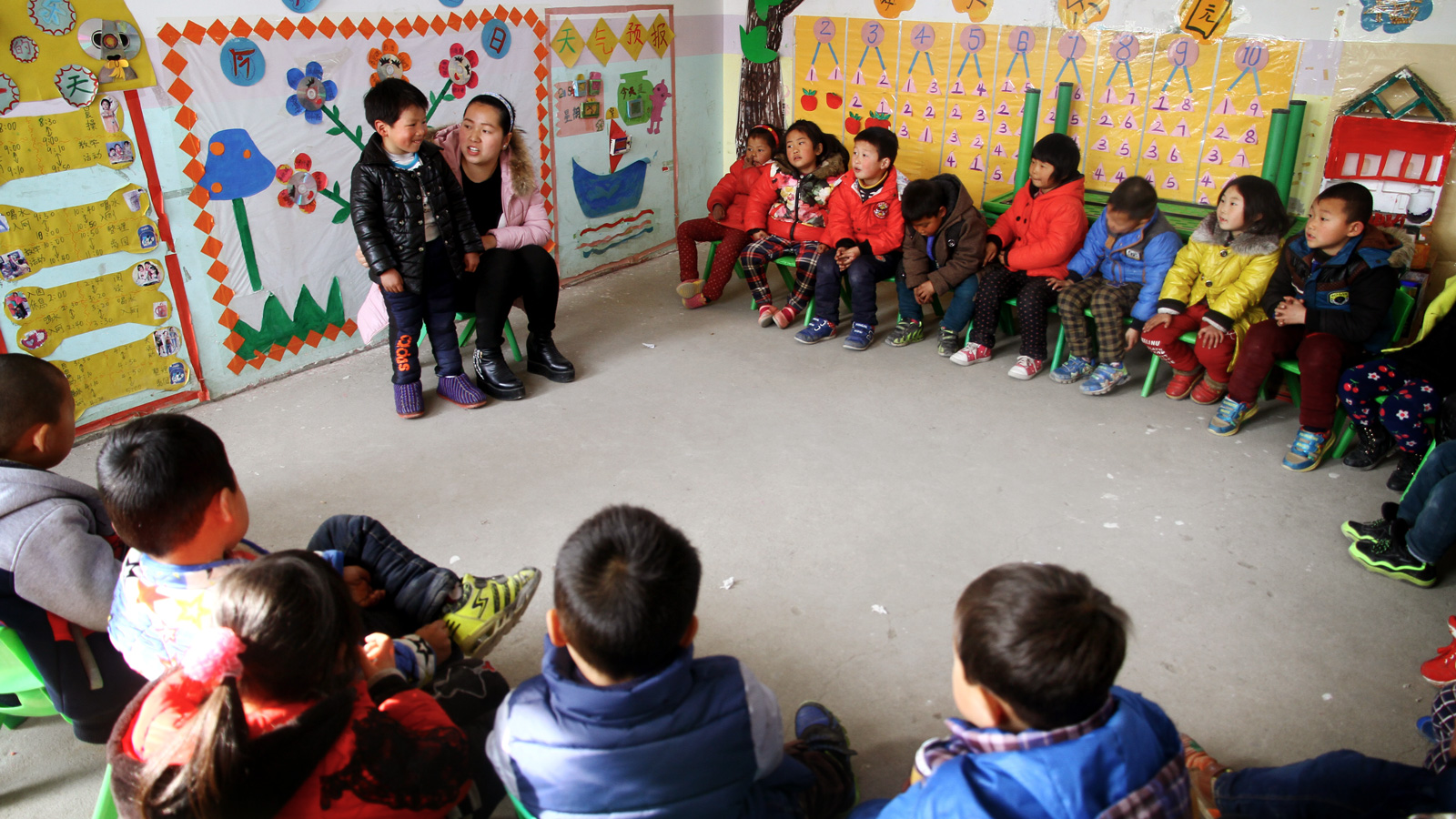
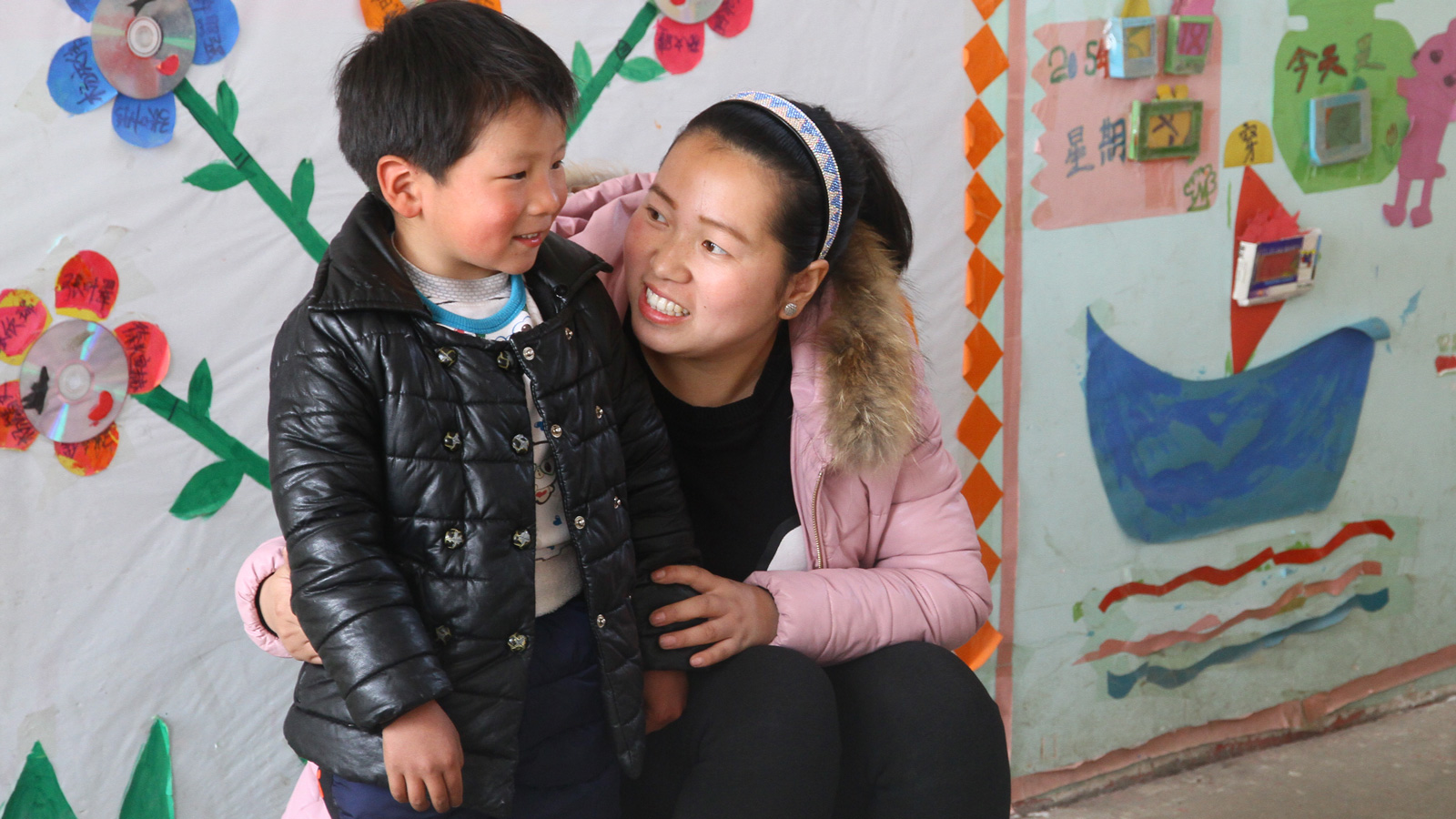
A harder challenge was posed by the adults. At first, some of the village parents and grandparents found the school activities hard to understand. When they saw a group of children outside watering plants, for instance, it didn’t look like the kind of school activity they were used to! And shouldn’t the children be writing Chinese characters and not drawing tortoises?
Xiyan’s answer was to invite the adults to come to school, too. “They thought the children just played all day, and I began to feel frustrated.” Because most of these children are left-behind children, whose parents are away in the city working, it’s the grandparents who send them to school. So she invited the grandparents to come try out the school themselves. This way they could get an idea of the daily routine.
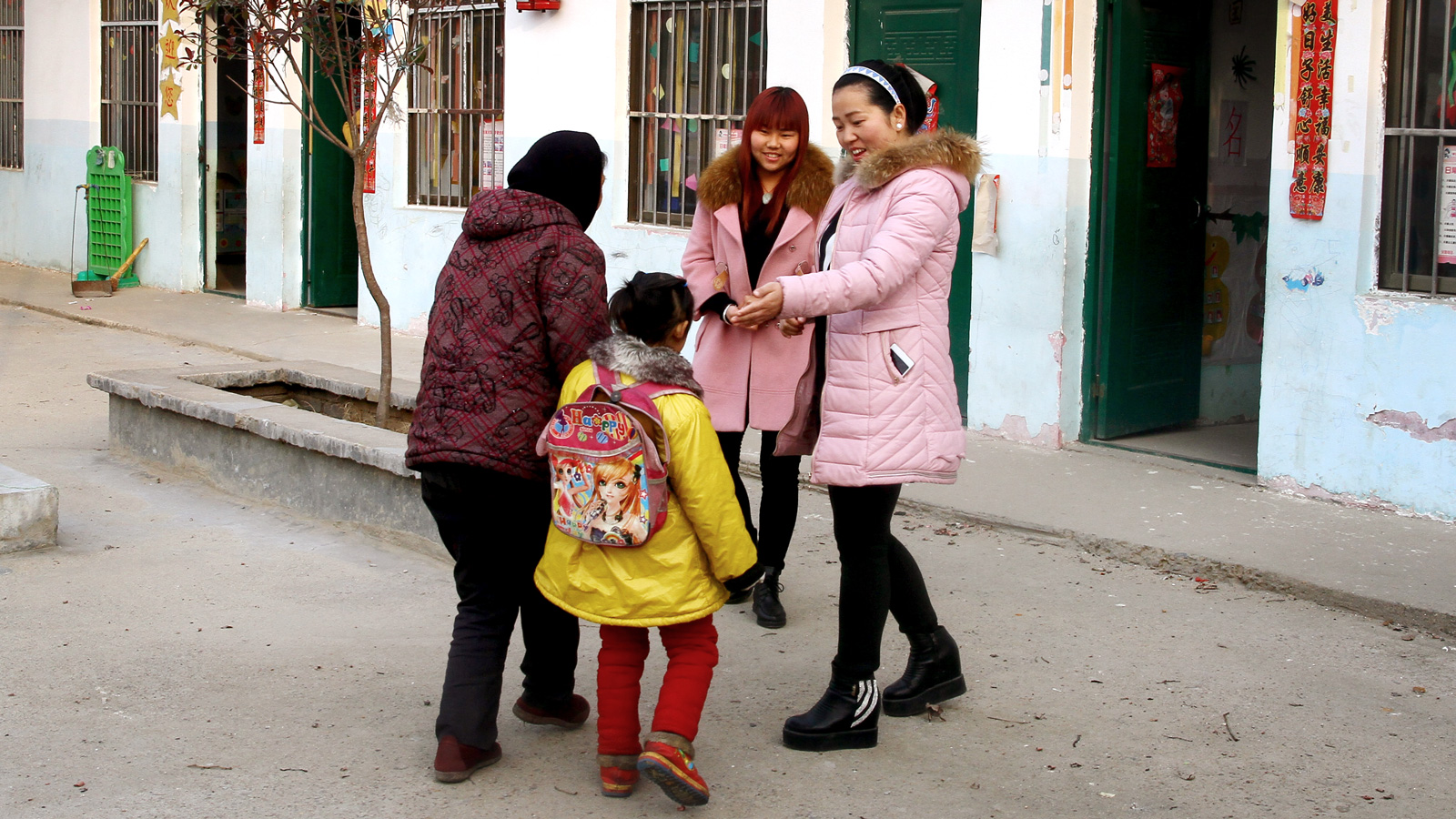
“What’s even better,” says Xiyan, “they could see their children’s happy faces and see how much they were learning and growing.” After the classroom was opened up, some of the grandparents put aside their farm work and accompanied the children to class and even did handiwork with the kids. The result was that they gradually accepted the OneSky approach.
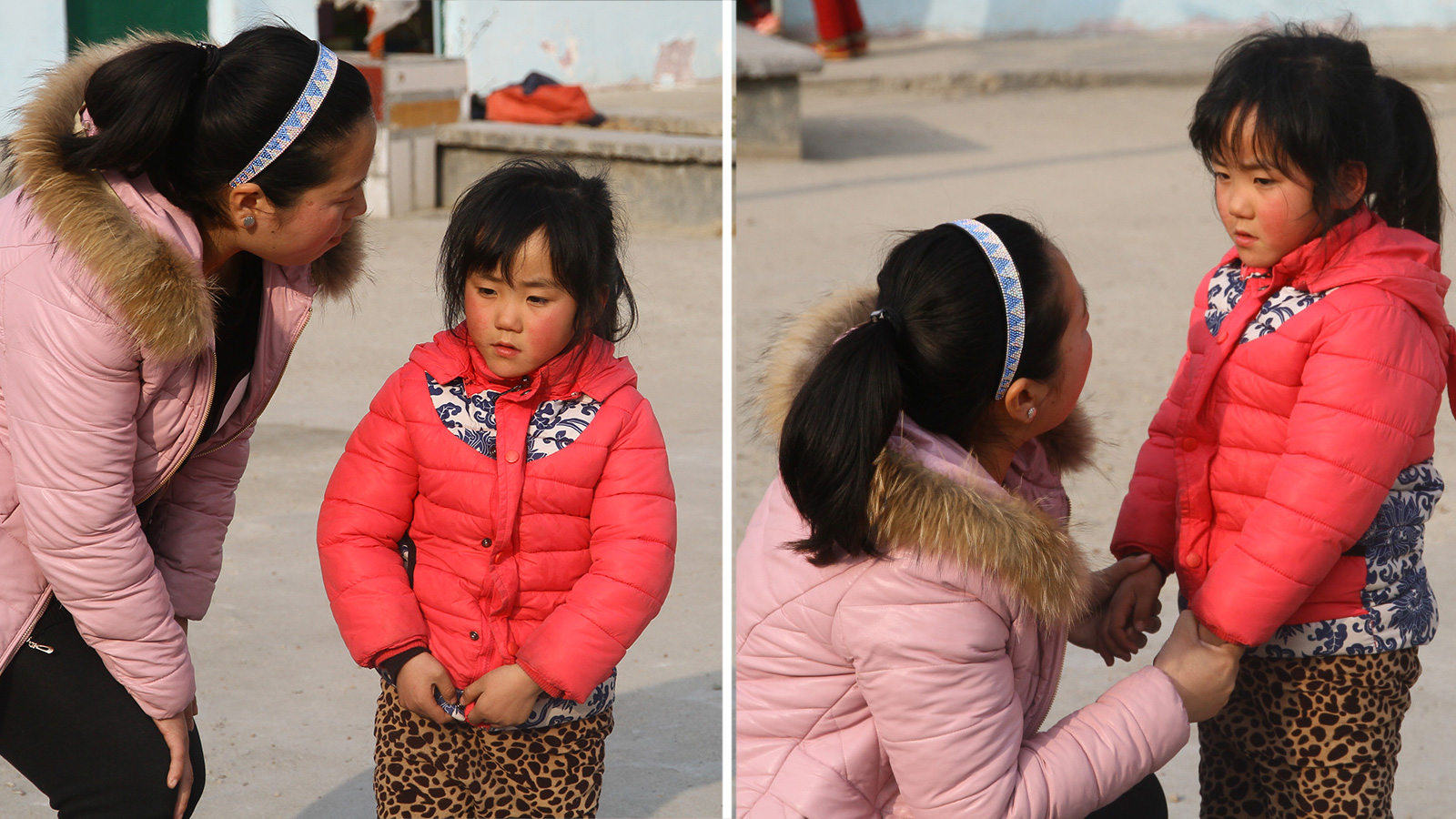
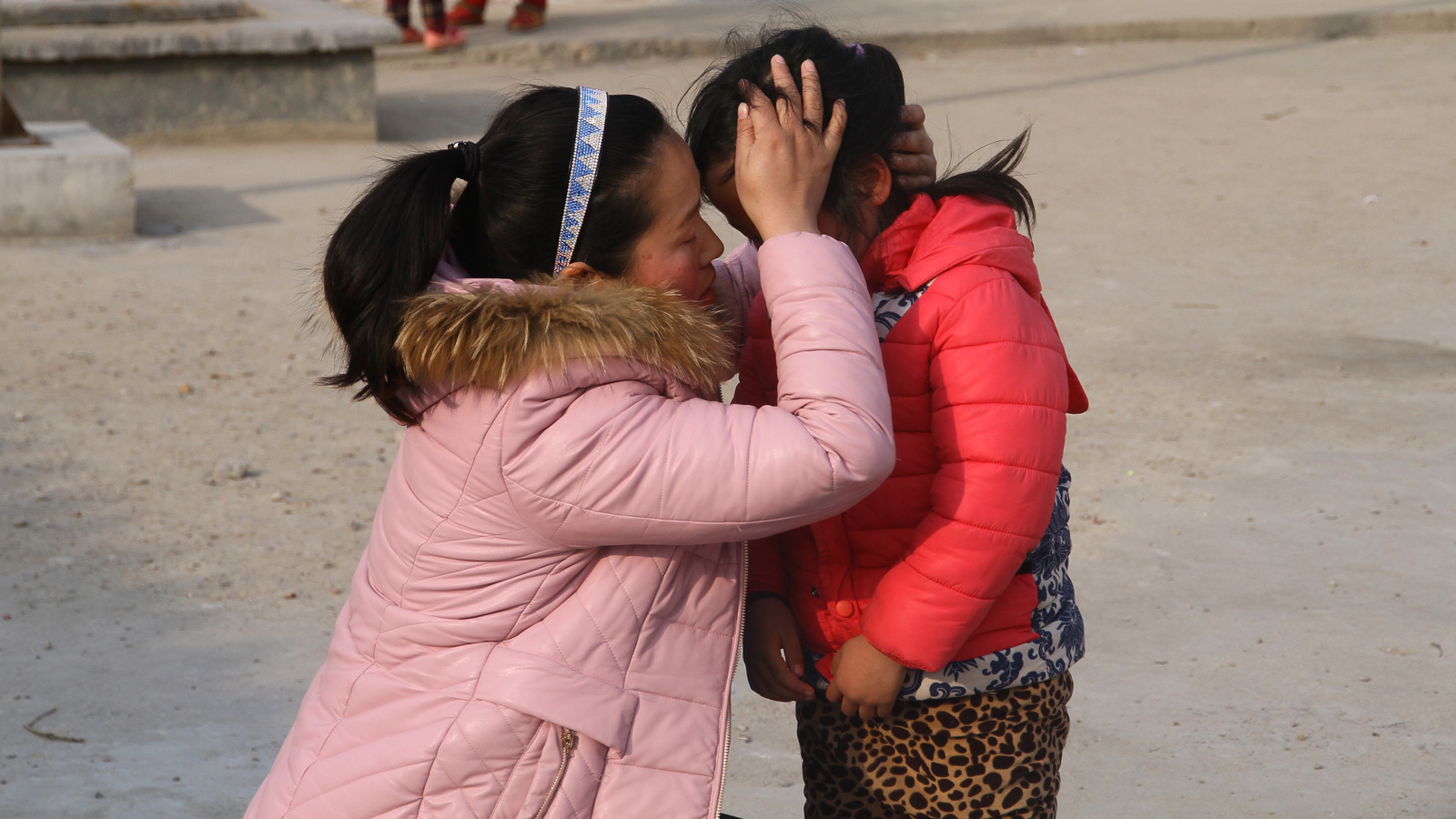
“This made me very, very happy,” says Xiyan. “Before our preschool opened, most children had studied outside the village. But now more and more families are bringing their children here to study.
“Every day is a brand new day for me,” says the young teacher. “I always want to improve and help the children more. My happiest moments are when the children are happy.”

And here’s something really interesting, she adds: “I’ve noticed that the grandparents have changed. When they came to school to pick up their children their first question used to be, ‘Do you have any homework today? You better get started!’ Now, they say, ‘Did you have a nice day at school today? What was your favorite game?’
“They see how much the children are learning, and how much enjoyment they are having at the same time. That makes me very happy, too!”
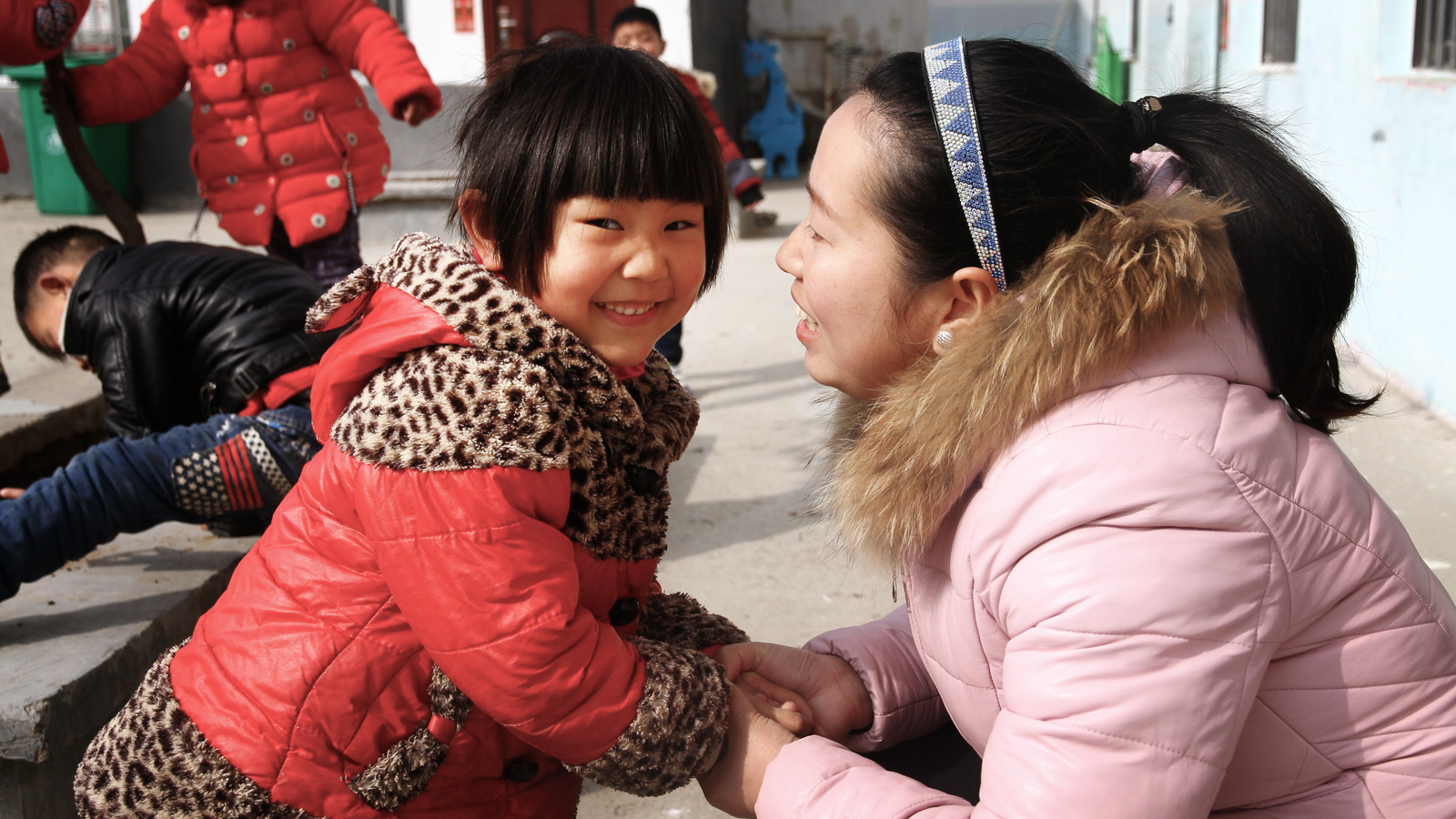
By Karin Evans

